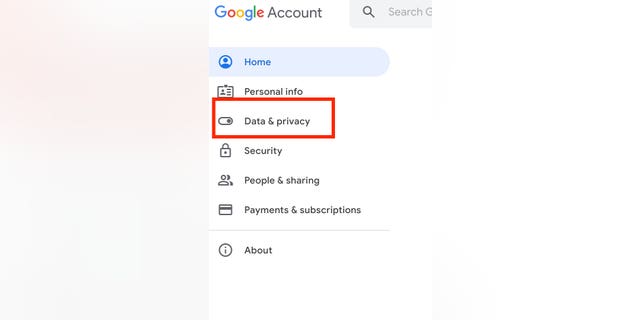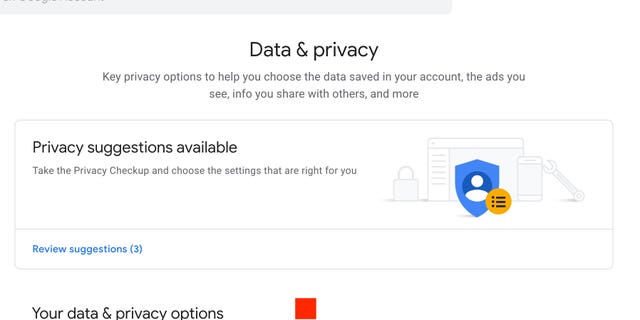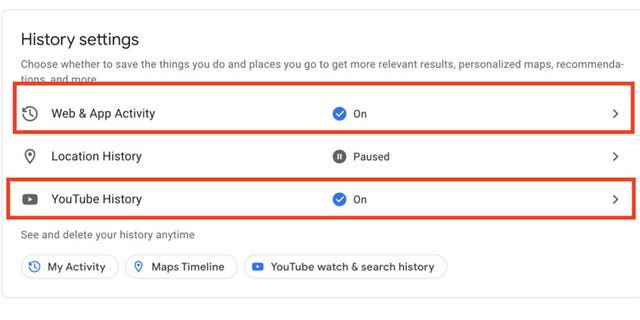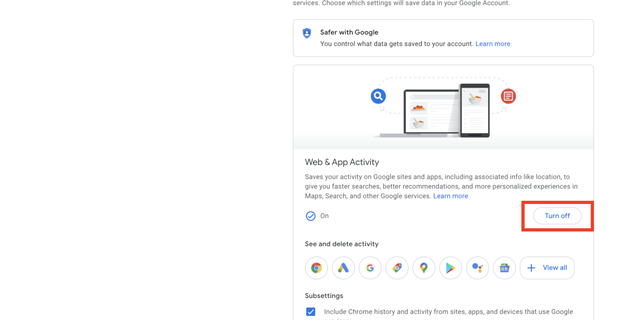I don't know about you, but I am so sick and tired of seeing deeply personal and identifiable private details about my family online. Despite all that I do to remove myself from the internet, private stuff pops up once in a while such as my home address or a photo that I made sure was set to private.
There's hope to get your personal details off the internet
With so much of our data shared on social media and over the internet in general, it's not hard to imagine how much personal data about you is available for others to find. What's scarier and harder to imagine, however, is someone showing up at your residence or workplace after Googling your first and last name to find the exact address.
How to scrub yourself off the web
Although it is nearly impossible to scrub all your data online, it's important to understand what information is available about you to then figure out a manageable strategy to take the most impactful information offline as well as prevent future leakages.
The primary offender in spilling your personal information online is data broker sites aka "People Search," which allow you to input the name of any person, often for a fee of just a few dollars, and receive their contact information such as phone numbers and addresses; age; birthdate, work history, etc. WebFX reports that there are more than 4,000 data broker sites collecting data on over 500 million consumers,
One of the biggest data brokers, Acxiom, is said to have collected 3,000 data points for each American that it profits from selling to the highest bidders.
The enormity of how much of our personal and private information is collected and sold can make you feel ready to give up before you start. Getting a grip on scrubbing away personal details of your life not only affects your privacy - it is vital for your security. Below are strategic ways to effectively and efficiently reduce the amount of information about you being harvested and sold around the world.
How much of your private information is already out there?
MEDIA ASSASSOT ON ELON MUSK
#1 Google Yourself
When's the last time you tried to find yourself? Before you launch into a campaign to reach out to all data broker sites, put on your own private investigator hat to check what sites have information about you already online.
Here's how easy it is to start. Log out of your own Google account then Google yourself by searching your first and last name at google.com. This is the most accurate way to see how an average user finds information about you via Google. Arguably the largest search engine online, it is the most likely source most snoops would use to glean information about you.
TWITTER FACES ALLEGATIONS OF ELECTION IN INTERFERENCE OVER HUNTER BIDEN CENSORSHIP
#2 Make yourself unsearchable
There is data collection from companies and massive dumps of privacy compromises by hackers. Leaving unnecessary personal details online creates a risk of a random stranger or potentially dangerous individual arriving at your doorstep. All it takes is simply gathering information found on Google and other search engines to make you a target.
Google and other search engines are continually harvesting and aggregating information about you. If you have publicly available social media or website presence, you cannot completely prevent your name from appearing on search results. These, however, are some key ways to make your information less likely to show up when searching your name.
HUNTER BIDEN LAPTOP REPAIRMAN JOHN PAUL MAC ISAAC REACTS TO TWITTER FILE DUMP: 'GRATEFUL'
How to change search engine settings for more privacy
Let's focus on some easy steps on Google as it is the largest and most used search engine online.
- Log on to your Google account on your desktop
- On the upper right-hand corner of the page, there should be a dialpad icon
- Click the icon for a drop-down menu
- click the 'Account' icon
- click 'Data & Privacy' on the left-side menu

Instructional photo of selecting "Data & privacy" on Google.
(Fox News)
- On the 'Data & Privacy' page, scroll down to the 'History setting' options

Data and privacy screen on Google.
(Fox News)
- Under 'History Settings', click on 'Web & App Activity'

History settings page on Google with instructions on how to personalize web and app activity and YouTube history.
(Fox News)
- Under'Activity Controls', click'turn off' so it'll stop aggregating information from your Google services and sites. Or if you'd prefer to keep it on, you can "turn on" auto-delete so that it periodically deletes this information. You can repeat these steps for your "YouTube History."

Google settings allow you to "Auto-delete" the information it aggregates regularly.
(Fox News)
How much of your private information is already out there?
SAN FRANCISCO RIDICULED OVER PUSH FOR ROBOT POLICE CAPABLE OF LETHAL FORCE
#3 Invest in Removal Services (best outcome)
In addition to the sheer number of data broker sites hacking your data, the unfortunate truth is that many of these sites keep gathering information on you both from public records and online usage even after you've had data removed previously. It never stops.
While it is possible for you to go to each site and manually request your information to be removed, you'd be doing this non-stop. Unfortunately, there is little regulation when it comes to data brokers. Just because you remove your data from the web doesn't mean the data brokers are going to suddenly stop reselling it again months from now.
While no service promises to remove all your data from the internet, these top services are great if you want to constantly monitor and automate the process of removing your information off hundreds of sites over a longer period of time.
The first time I tried one, everything I didn't want to see about myself was gone. Months later, it bubbled back into the crevices of Google. That's when I learned that subscribing to removal services that constantly scour and remove private data is the most effective way to go.
A NEW STEM-BASED SCHOOL PROGRAM IS TEACHING KINDERGARTENERS HOW TO USE ROBOTS
Top Choice: OneRep
OneRep is my favorite. It has a very clean interface, and you will be amazed at how much of your private information will be discovered and ultimately removed. OneRep offers both monthly and annual plans for personal information removal. At the time of publishing, OneRep scans 191 websites.
OneRep starts at $8.33/month for one person on their monthly plan, or $15/month for your family (up to 6 people) on their monthly plan. Unlike the services mentioned below (both DeleteMe or Kanary), OneRep does offer a 5-day free trial.
Starting at $49.99/month (billed annually at $299.99), BrandYourself will remove your exposed information from 35+ sites. While this company has a steeper price than the others, they offer a la cart features for finding out if your sensitive information is on the Dark Web ($14.99/year), can improve Google Results to control what people find when they Google you ($44.99) /year) and helps you clean up your social media profiles by discovering and deleting any flagged posts and images that could cost you opportunities ($14.99/year).
Starting at $10.75/monthly (billed annually at $129), the standard plan for one person for one year includes removing your information from over 30 data broker sites. In addition to receiving a detailed report within 7 days of sign-up, this annual service scans and removes personal information off websites every three months. If you ever find your information on a data broker site not included in your service, you can submit a removal request. delete me will research whether it is able to remove your data off that site or not. While DeleteMe is similar to OneRep, its annual plan is more expensive.
CLICK HERE TO GET THE FOX NEWS APP
Kurt "CyberGuy" Knutsson is an award-winning tech journalist who has a deep love of technology, gear and gadgets that make life better with his contributions to Fox News & FOX Business beginning mornings on "FOX & Friends." Got a tech question? Get Kurt's CyberGuy Newsletter, share your voice, a story idea or comment at CyberGuy.com.
Copyright 2022 CyberGuy.com. All rights reserved.
Originally published at Source Sci Tech


